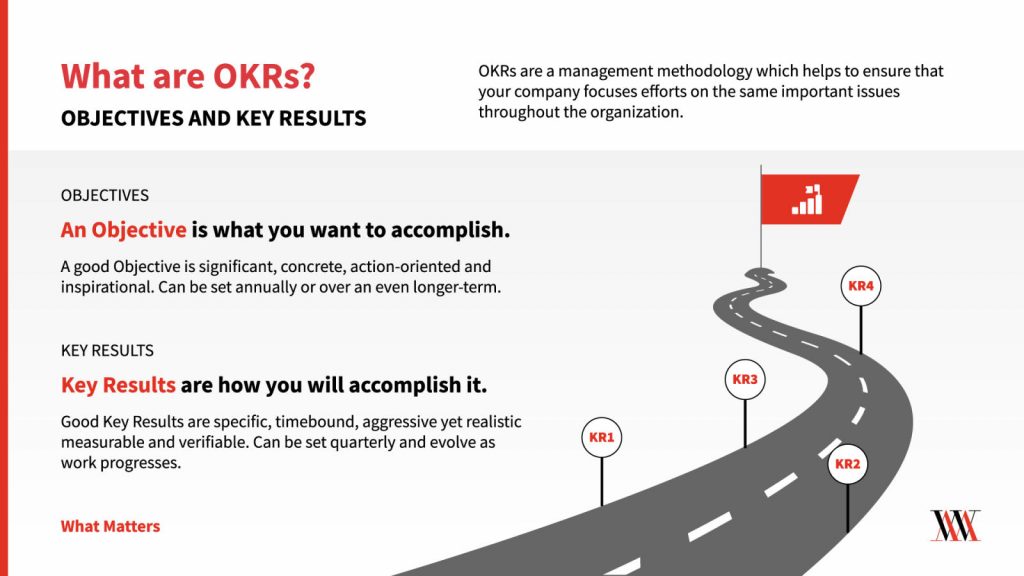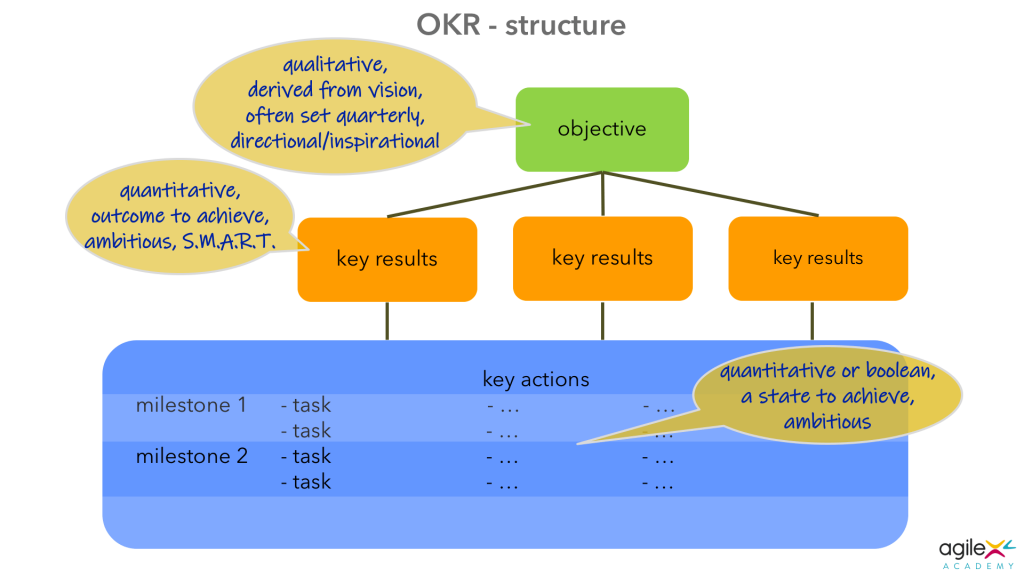
How to harness OKRs as a freelancer
OKRs are a goal setting framework, designed to help its users pursue measurable goals and track their outcomes. Because it is simply a framework, it can be applied at any scale of business – from the individual worker, to the team or even an entire organisation. But what exactly is the OKR framework? How does it help to measure growth? And why might it be ideal to helping freelancers achieve success?
What’s an OKR?
In his 2018 book Measure What Matters, John Doerr writes about how businesses can use OKRs to be successful. And indeed, praise for the book comes from people like Bill Gates, Sheryl Sandberg, and Larry Page – whose success is unquestionable. While Doerr wrote the book, he attributes the original method to Andrew Grove. This “father of the OKRs” was an early employee, and later CEO of Intel, where he pioneered the method all the way back in the 1970s.

But what exactly are objectives and key results? The objective is the what – the goal you want to achieve. This should be something concrete and action oriented, a “vaccine against fuzzy thinking and ineffective execution”, as Ryan Panchadsaram writes. Panchadsaram is the co-founder of the WhatMatters website, designed to help people understand and achieve success through OKRs. The 3-5 key results are like steppingstones, the how of achieving your objective. They should be specific, measurable and time bound. These are not meant to be tasks to be crossed off a list, but rather outcomes designed to help you complete your objective.
While an objective can be long-term, the key results assigned to it can evolve over time. The OKR formula then is as follows:
I will (objective) as measured by (key results).
By the phrasing of the formula, it becomes apparent that measuring is a big part of this strategy. OKRs are meant to be graded and are as such phrased in a way that leaves no ambiguity. Either you achieved your key results, or you did not. The granularity with which you grade is user preference though. Some users prefer grading by percentage, others use a traffic light system (green, yellow, red) or a binary yes/no approach.
How do Freelancers benefit?
But how might this framework – an objective paired with 3-5 measurable and specific key results – help a freelancer? As I have previously explored on this blog, being a freelancer means you are your own boss, but also your own manager and secretary. The freedom of being freelance means you stand before an open ocean of possibility. But this freedom paired with the need to self-manage might easily overwhelm someone new to freelancing.
OKRs are a framework designed to provide structure. They have a clear hierarchy of an achievable objective and set key results. Through this hierarchy and the fact that it is entirely unambiguous and measurable, it creates a framework for action as well as a strategy for accountability.

When writing about the benefits of OKRs, John Doerr also wrote about F.A.C.T.S – focus, alignment, commitment, tracking, stretching. Especially the ideas of focus and commitment, helping you double down on what you are doing and identifying your next steps, seems particularly relevant. Tracking is about measuring and accountability – as a one-person business you have no superiors to do end of year evaluations or quarterly reviews, so how do you best measure your own successes?
Part of the WhatMatters website are case studies of a kind. Stories of how the OKR framework has helped individuals and businesses be successful. Among them is the story of one freelancer who explains how using OKRs has helped her. She outlines how the framework helps her move ideas into the execution phase more easily, and how it drives her creativity in the inception phase. Beyond that she also uses it to slightly overperform and -deliver, which in turn helps her be more ambitious and build stronger long-term relationships with clients.
How to develop good OKRs?
If OKRs have such potential, how do you harness that? First you need to understand how to write good OKRs. This entails a few things.
Firstly, OKRs are not KPIs (key performance indicators). They are meant to encourage and measure growth, while KPIs are used to review performance as is – like a kind of health indicator.
Secondly, you can approach your objectives and key results from different angles. The WhatMatters website draws out three distinctions: commitment, aspirational and learning OKRs. While a commitment OKR is expected to draw a passing grade when evaluated at the end of the set time, the aspirational OKR is not. This might be a long shot or take a few iterations of key results to be achieved. A learning OKR is more open-ended in its outcomes, geared to learn and understand – and eventually inform a committed or aspirational OKR.
Thirdly, there are a few things you should avoid when using the framework. The core idea behind it is that beyond keeping you on target and letting you measure your success; it is meant to drive growth. As such you should avoid setting the bar too low for yourself. A realistic success is good, but it should not be a given. Similarly, they should not be used for simply maintaining what’s normal, but help you push beyond that.
How to write good OKRs then? Be ambitious, challenge yourself.But make sure the goals you set are specific and measurable, not nebulous and negotiable. Your key results should be outcomes rather than mere tasks on a list. How you keep track of your OKRs is personal preference as well. From pen and paper to a word document, to specific software designed to track productivity, there are many options out there as well.
Sources
A History of Objectives and Key Results (OKRs)
OKR Examples and How to Write Them – Betterworks
OKR Setting: How-to Guide to Effective OKRs | Fellow.app
Setting goals and objectives for your freelance business :: Freelance UK
What Matters: Freelancer OKRs & How to Help Clients Focus
What Matters: OKR: Definition & Examples of Objectives & Key Results

